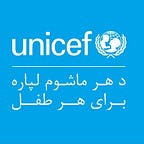Solar pumps bring safe water to internally displaced community in Herat
Safe water improves health and safety of families in western Afghanistan
By Zaeem Abdul Rahman and Nicole Foster
HERAT, Afghanistan, 15 January, 2017 — The Kamar Kalagh settlement for internally displaced people in the western Afghan province of Herat has suffered many a hardship. But the toughest challenge may well have been the death of seven children four years ago from what seemed like mysterious causes at the time.
“Many people were getting sick all the time… children died. We had to make expensive journeys to health centres to seek treatment,” says Amir Jan, a long-time resident of Kamar Kalagh, recalling the terrible events of the time.
“The causes of the illnesses were not clear to us, but eventually we found out that the water we were drinking was the main source of the diseases plaguing us,” he explains.
The families of Kamar Kalagh had been drinking contaminated water from a nearby river that resulted in numerous illnesses, including acute diarrhea, which can be life-threatening for children.
But even once the cause of the problem was identified, women and children still had to walk long distances to access safe water sources and carry heavy pots and jugs through sometimes highly insecure areas.
The settlement of Kamar Kalagh has been home to more than 200 families internally displaced by ongoing conflict and droughts for the past 15 years. Many among these formerly nomadic communities lost their livestock and settled informally in the Injil district of Herat.
The lack of access to safe water had been one of the biggest problems plaguing their daily lives.
Significant changes
In 2014, UNICEF supported the Herat Provincial Department of Rural Rehabilitation and Development to provide a solar-powered water pump system for the community.
No deaths and illnesses related to contaminated water have been recorded since, and the positive effects have endured, too.
“The infected water took the lives of our children, but now the diseases have stopped. We are not worried about that risk anymore,” says Mohammad Wali, a teacher in the community.
His friend, an elder named Kala Khan, couldn’t agree more: “You see these pipes? Now the clean water reaches all the surrounding houses,” he says enthusiastically.
Water powered by the sun
© UNICEF Afghanistan/2016/Rahman
The solar pump system was set up by digging a borehole and installing solar panels, using light energy to pull safe water from deep below the earth’s surface. The water then flows into a storage tank which holds enough supply for the day.
Gravity does the rest by allowing the water to flow through a pipe system to 30 different water points. Located only 15–20 metres away from each other, they serve almost every area along the IDP settlement.
“I take water home from this water point here,” says Masouma, a nine-year old girl, as she points to a tap. “You see there are a lot of taps all around but this one is closest to my house. I also wash my hands and face. It’s fun!”
Thank you to the people and government of Japan for their generous contribution to water, hygiene and sanitation in western Afghanistan.
